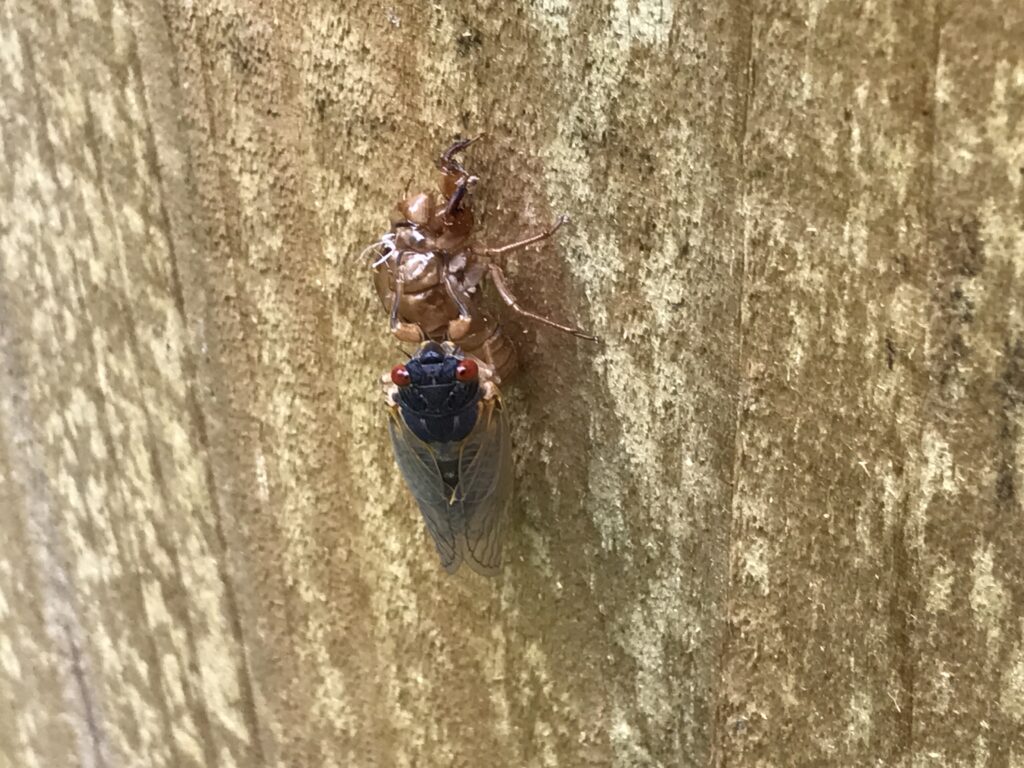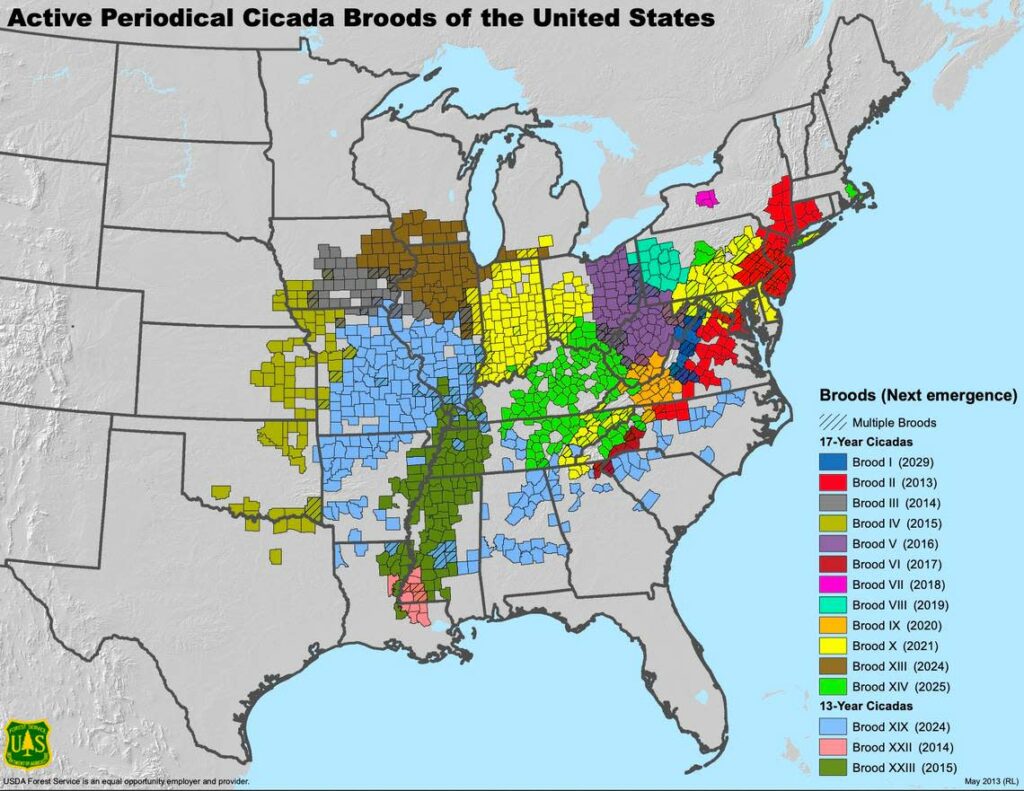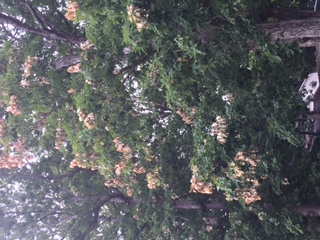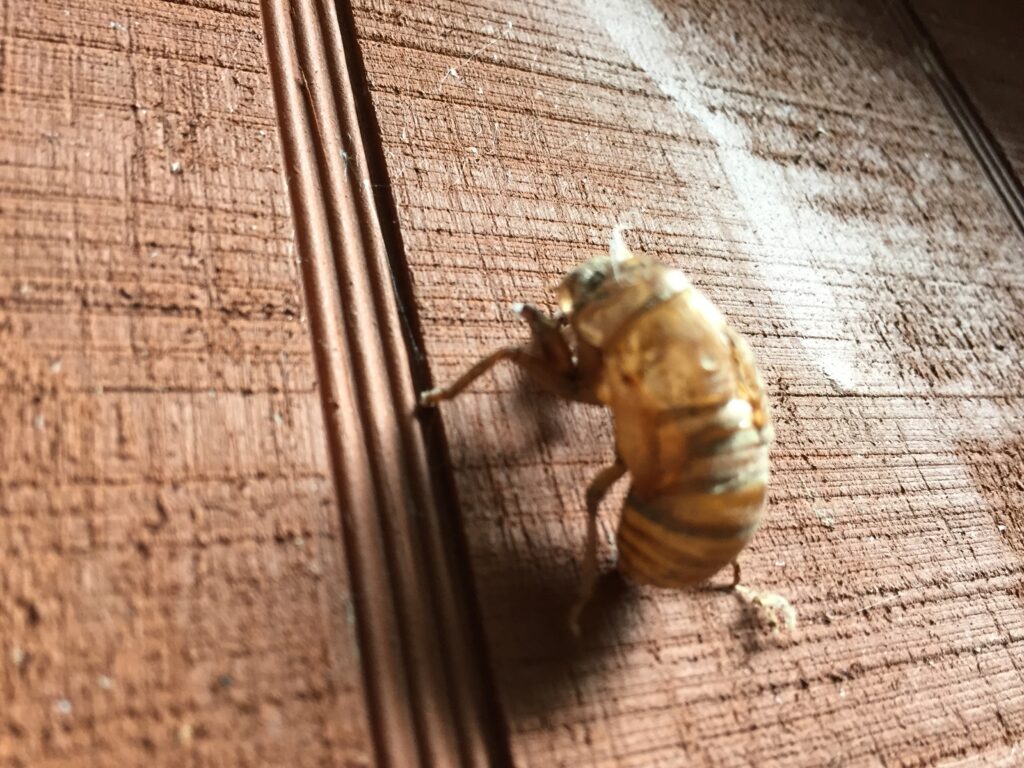Landscape Alert – Noisy Cicadas
go.ncsu.edu/readext?985258
en Español / em Português
El inglés es el idioma de control de esta página. En la medida en que haya algún conflicto entre la traducción al inglés y la traducción, el inglés prevalece.
Al hacer clic en el enlace de traducción se activa un servicio de traducción gratuito para convertir la página al español. Al igual que con cualquier traducción por Internet, la conversión no es sensible al contexto y puede que no traduzca el texto en su significado original. NC State Extension no garantiza la exactitud del texto traducido. Por favor, tenga en cuenta que algunas aplicaciones y/o servicios pueden no funcionar como se espera cuando se traducen.
Português
Inglês é o idioma de controle desta página. Na medida que haja algum conflito entre o texto original em Inglês e a tradução, o Inglês prevalece.
Ao clicar no link de tradução, um serviço gratuito de tradução será ativado para converter a página para o Português. Como em qualquer tradução pela internet, a conversão não é sensivel ao contexto e pode não ocorrer a tradução para o significado orginal. O serviço de Extensão da Carolina do Norte (NC State Extension) não garante a exatidão do texto traduzido. Por favor, observe que algumas funções ou serviços podem não funcionar como esperado após a tradução.
English
English is the controlling language of this page. To the extent there is any conflict between the English text and the translation, English controls.
Clicking on the translation link activates a free translation service to convert the page to Spanish. As with any Internet translation, the conversion is not context-sensitive and may not translate the text to its original meaning. NC State Extension does not guarantee the accuracy of the translated text. Please note that some applications and/or services may not function as expected when translated.
Collapse ▲
An adult cicada emerges from its pupal form. The insect, a type of really large aphid, lives underground as a grub either for one year or for some groups 13 or 17 years. When the time comes the insects emerges as an adult shedding its pupal exoskeleton. These can be seen hanging on trees and other structures.
This summer is going to be noisy! The famous cicada is going to be emerging in incredible numbers in many areas of the eastern US. Emerging in May and disappearing again before July, the insect will be present in the trillions.
There are cicadas that emerge annually. These are the insects we hear whirring in the tops of trees during daylight hours in the summer. Other broods emerge on longer cycles from 13 to 17 years.
Cicadas are harmless to people. However the cicadas loud whirring/chirping sounds can ruin outdoor events on years when two or more ‘broods’ or groups emerge at the same time. This event only happens rarely. This year’s emergence hasn’t happened in 200 years.
Henderson County will not have the apocalyptic numbers that some areas of the country will have. Our local periodic cicada ‘brood’ group last emerged in 2017 so won’t be seen again for a while. Our ‘brood’ is a 17 year cicada which means we won’t see them in large numbers until 2034. But we could have higher than usual numbers making the summer a lit bit noisy! In 2017 we saw lots of branch tip dying as a result of cicada egg laying activities.

Our 17 year brood VI last emerged in 2017 as indicated in dark red on this USDA map. The big emergence is where the brown and blue areas merge.






